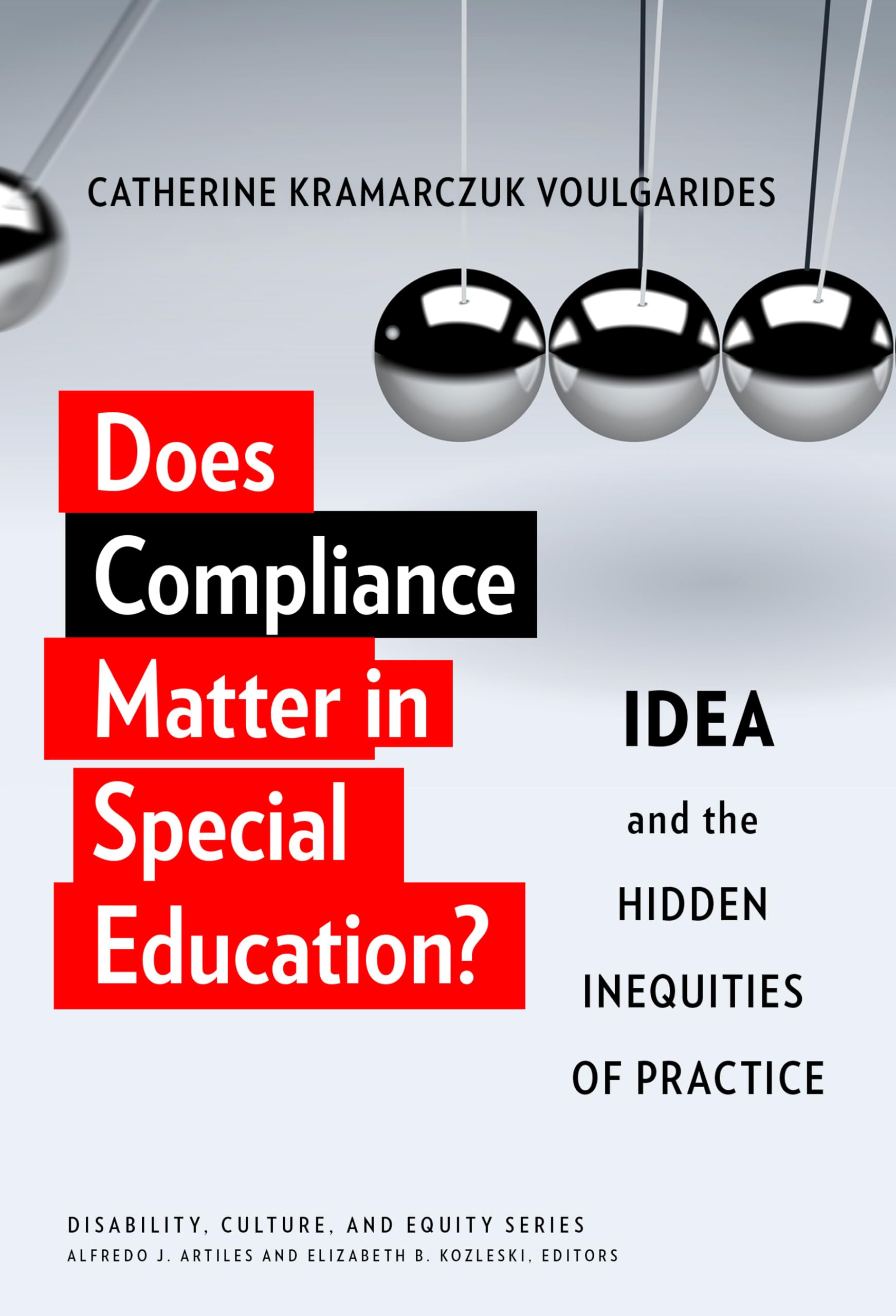

Does Compliance Matter in Special Education?: IDEA and the Hidden Inequities of Practice (Disability, Culture, and Equity Series)
A**E
Great study
I really like it only she should have defined compliance as many of the situations she discusses are legally not compliant though the paperwork has been filled out correctly.
T**
An excellent resource for critical conversations around systematic inequities in SPED
The book is well suited for administrators, teachers, and teacher-candidates looking to have critical conversations around inequities in a complex system.While it doesn’t argue for any specific “fix” for IDEA or special education laws, it does lift out the need for “inequity interrupters” at every level.An essential read for any researcher or practitioner who believes in equitable outcomes for all students.
J**S
Problematically biased and lacking sufficient practical example
There is a generally reactive/rejecting tone to this book that seems to bias its direction and likely outcomes. The author clearly recognizes inequalities in the educational system, especially how it affects persons of color or those less educated. But this is translated into an attack on the merits of the system, as though everything that some might consider functional and adaptive, i.e. critical thinking, intelligence or perhaps some other hallmark of western civilization, could be traded for all manner of indigenous practice, ignorance, poverty, and apathy.We can all agree that indigenous peoples and slaves were pacified, denied an education, pushed back and down into poverty, social and institutional structures of which remain today. Descendants of slaves are often still poor, uneducated, apathetic, servile, angry and so on.But should we dismantle the IDEA?The author writes, "These findings illustrate how the power granted to parents through IDEA may actually encourage social practices like opportunity hoarding, which, in turn, exacerbate racial inequities."Without citing all the author's criticisms, let me say that the answer to the problem is not dismantling the IDEA or somehow simplifying its complex legalities. Taking power from parents, especially "white parents" is not in the least empowering for black parents and black children.Removing or destabilizing legal mechanisms will be disempowering for everyone involved. Taking opportunities from "white children" and giving them to "black children" deprives one child on one side of the equation: (-1) for the white child and (+1) for the black child. A more just response would be to empower and educate the black child in a (+1) = (+1) equation.But black children aren't the only kids harmed by problematic interactions and collaboration in the school system. Impoverished people as a whole are harmed because of the complexities involved and the education level necessary to negotiate the process. Being white certainly advantages some parents in school systems where racial bias is more covert, perhaps even overt.For black children and the impoverished, a better approach would be provision of neutral advocates and necessary resources to negotiate the IEP process. More importantly, it would be an institutional change that precludes the necessity of legal intervention through the IDEA. School funding needs to be delinked to property tax and provided in equal measure to all children by "great teachers" who are brainstorming, troubleshooting, thinking outside the box, and ultimately willing to examine and refine their practices to improve educational outcomes for all students.Standards of learning, No Child Left Behind, and so on (all of which should have been funded mandates) are needed to prevent the glossing over of inadequacies in teaching that leave children undereducated, impoverished and without opportunity.
Trustpilot
1 month ago
2 weeks ago